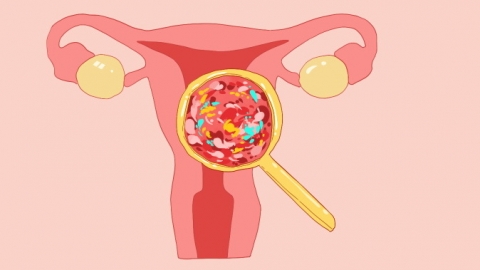What should I do if inflammation occurs as soon as I have sex with my partner?
Under normal circumstances, inflammation occurring upon sexual intercourse with a partner may be caused by factors such as friction during sex, secretion irritation, bacterial vaginosis, cervicitis, or pelvic inflammatory disease. It is recommended to seek timely medical consultation, identify the underlying cause, and under a doctor's guidance, take measures such as general care and medication to improve the condition. Detailed analysis is as follows:

1. Friction during sexual activity: Vigorous movements or insufficient lubrication during intercourse can cause minor vaginal or vulvar mucosal damage, weakening the barrier function and making inflammation more likely. Symptoms may include local burning sensation and mild pain, which usually subside before the next sexual encounter. It is important to perform sexual activity gently and appropriately use water-soluble lubricants to reduce friction.
2. Secretion irritation: Mixing of bodily secretions between partners or the use of condoms and lubricants may alter the vaginal pH, disrupting microbial balance and triggering inflammation. Symptoms may include mild itching and increased vaginal discharge without a significant odor. It is recommended to choose suitable condoms and lubricants, urinate promptly and wash the vulva after intercourse to reduce secretion residue.
3. Bacterial vaginosis: Vaginal dysbiosis after sexual activity can lead to excessive growth of anaerobic bacteria, causing inflammation accompanied by grayish-white homogeneous vaginal discharge, a fishy odor, mild vulvar itching, and worsening odor after sexual intercourse. Patients should avoid frequent sexual activity and follow medical advice to use medications such as metronidazole suppositories, clindamycin phosphate vaginal cream, or tinidazole vaginal effervescent tablets to inhibit anaerobic bacteria and restore microbial balance.
4. Cervicitis: Infection with chlamydia or mycoplasma during sexual activity can cause cervical inflammation, accompanied by increased vaginal discharge that appears purulent, postcoital bleeding, and lower back or abdominal pain. The pathogens can be transmitted through sexual contact. Patients should abstain from sexual intercourse, follow medical advice to take medications such as azithromycin dispersible tablets, doxycycline hydrochloride tablets, or levofloxacin tablets for anti-infective treatment.
5. Pelvic inflammatory disease: Infection ascending to the pelvis after sexual activity can lead to inflammation of the uterus, fallopian tubes, and surrounding tissues, accompanied by lower abdominal pain, fever, and purulent vaginal discharge. Abdominal pain worsens with physical activity or sexual intercourse, and if left untreated, it may affect fertility. Patients should rest in bed and follow medical advice to receive intravenous antibiotics such as ceftriaxone sodium injection, metronidazole injection, or levofloxacin injection for potent anti-infective treatment.
During daily sexual activity, both partners should thoroughly clean the external genitalia before and after intercourse to reduce the risk of introducing pathogens. Maintaining a monogamous sexual relationship and avoiding unprotected sex can lower the risk of infection.




